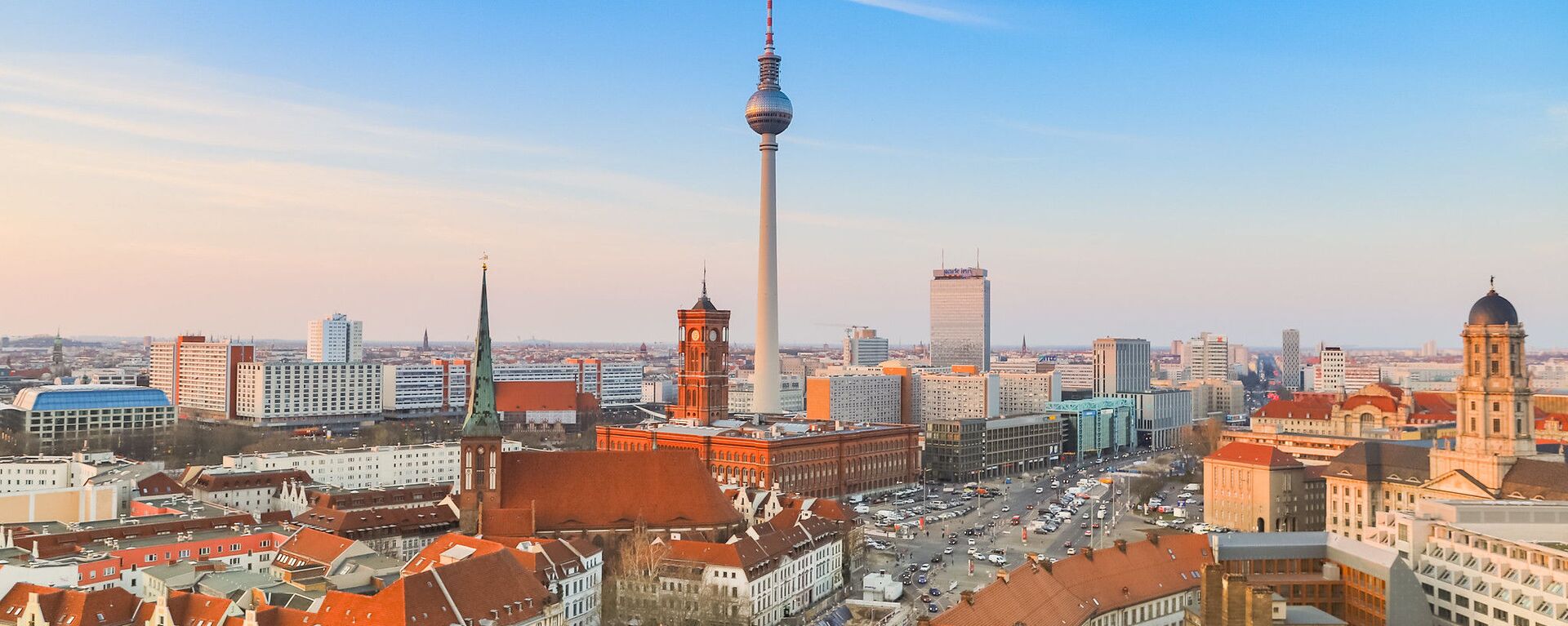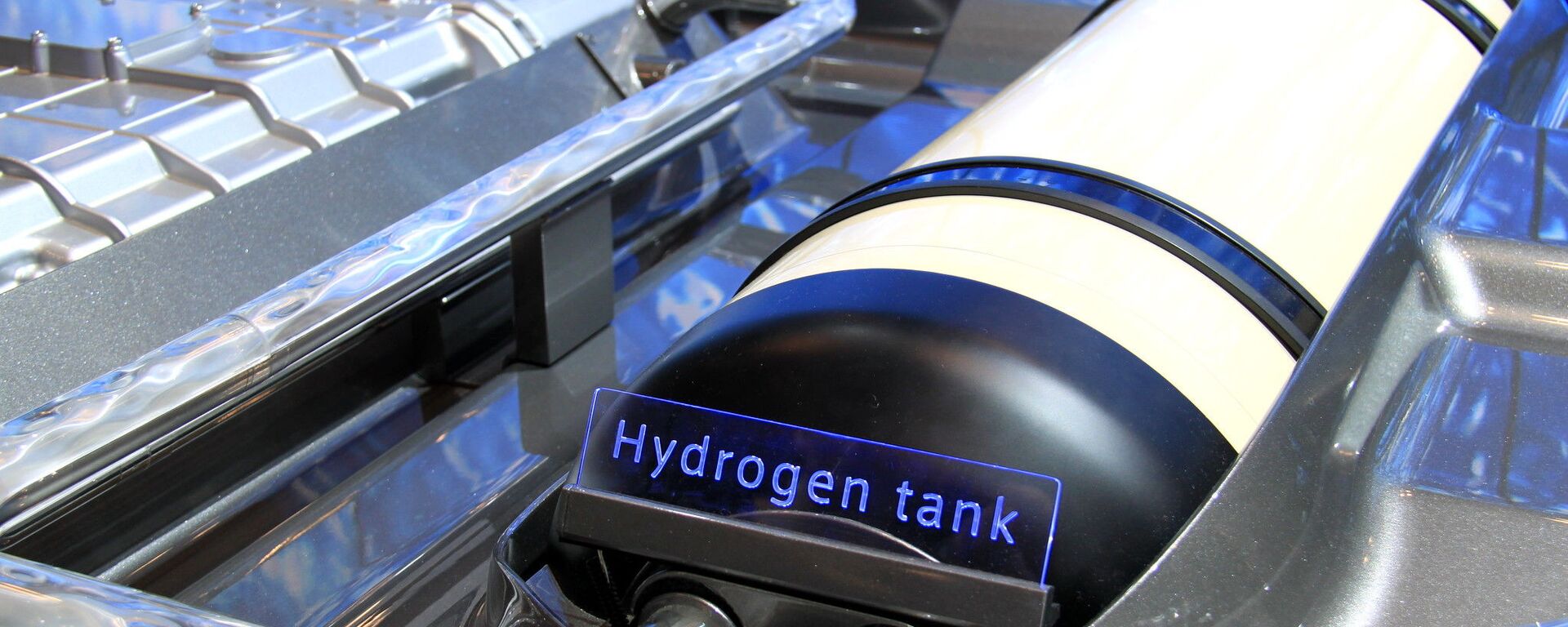https://sputnikglobe.com/20230731/france-assures-eu-can-survive-influx-of-budget-chinese-evs-as-russia-sanctions-take-toll-1112272135.html
France Says EU Can Survive Influx of Budget Chinese EVs as Russia Sanctions Take Toll
France Says EU Can Survive Influx of Budget Chinese EVs as Russia Sanctions Take Toll
Sputnik International
European Union business leaders have expressed growing concerns over the bloc’s ability to withstand the long-term economic impacts of last year’s decision to restrict the import of Russian energy. Last week, German opposition leader Friedrich Merz warned that Berlin may be on a course to irreversible deindustrialization.
2023-07-31T07:14+0000
2023-07-31T07:14+0000
2023-07-31T07:15+0000
economy
russia
france
european union (eu)
renault
nord stream
bruno le maire
joe biden
friedrich merz
electric vehicles
https://cdn1.img.sputnikglobe.com/img/07e7/07/1f/1112271967_0:29:800:479_1920x0_80_0_0_fb442fea825ff25cb55b2eab6135c40c.jpg
Europe’s car industry will be able to survive the coming tidal wave of inexpensive Chinese electric vehicle imports, French Finance Minister Bruno Le Maire has assured. The subsidies, expected to be worth between five and seven thousand euros per new vehicle sold, won’t be available for cars built using polluting plants, and are thus expected to limit the attractiveness of Chinese-made EVs.The minister also hinted that Chinese direct investments “specifically in the field of green transition and green mobility” could help make them eligible for the subsidies, with Chinese wind turbine maker Envision Energy already building a battery plant with Renault in northern France.Munich-headquartered financial services giant Allianz expects Chinese EV sales to continue to grow their share of the European market, and reach up to 1.5 million vehicles by the year 2030 (i.e. about 13.5 percent of total EU vehicle sales last year).The EU as a whole has ambitious plans to completely ban the sale of conventional fossil fuel-powered vehicles by the year 2035 – a goal which has faced setbacks in recent years, first due to short-sighted energy policies derived from overreliance on underperforming wind and solar power, and then as a consequence of European sanctions against Russian energy.NATO's proxy war against Russia in Ukraine prompted most European countries to dramatically reduce oil and gas imports from Russia, and to put off plans to import hydrogen, including via the Nord Stream pipeline network (which was damaged in a US terror attack last year). The energy crisis has led some European countries, including Germany and Poland, to resort to turning on highly polluting coal-powered power plants to make up for lost Russian supplies, further setting back green goals.Nevertheless, the EU’s official policy remains the promotion of non-hydrocarbon and renewable energy – a policy easier to pursue by some countries (like France, which relies on its extensive network of nuclear power plants) than others (like Germany, which decommissioned its final three nuclear plants in April).Russia warned in May 2022 that the premature decision by European countries to cut energy ties with Moscow would lead to a loss of competitiveness and leave the EU’s industries vulnerable to major competitors like China and the US.France approved a package of subsidies for hydrogen, battery, wind power, and solar panel manufacturers and the nuclear sector earlier this year in a bid to convince producers not to flee the country in search of better climes. The move followed the Biden administration’s decision last year to promote lavish subsidies for “green” producers under the so-called Inflation Reduction Act, which President Emmanuel Macron called a “super aggressive” step that could “split the West.”
https://sputnikglobe.com/20230730/germany-may-face-irreversible-deindustrialization---cdu-chair-1112257349.html
https://sputnikglobe.com/20230705/us-energy-and-tech-subsidies-frustrating-europes-clean-energy-efforts-1111681178.html
russia
france
Sputnik International
feedback@sputniknews.com
+74956456601
MIA „Rossiya Segodnya“
2023
News
en_EN
Sputnik International
feedback@sputniknews.com
+74956456601
MIA „Rossiya Segodnya“
Sputnik International
feedback@sputniknews.com
+74956456601
MIA „Rossiya Segodnya“
france, european union, china, ev, electric vehicle, market, subsidies, energy, russia, economic crisis
france, european union, china, ev, electric vehicle, market, subsidies, energy, russia, economic crisis
France Says EU Can Survive Influx of Budget Chinese EVs as Russia Sanctions Take Toll
07:14 GMT 31.07.2023 (Updated: 07:15 GMT 31.07.2023) European Union business leaders have expressed growing concerns over the bloc’s ability to withstand the long-term economic impacts of last year’s decision to restrict the import of Russian energy. Last week, German opposition leader Friedrich Merz warned that Berlin may be on a course to irreversible deindustrialization.
Europe’s car industry will be able to survive the coming tidal wave of inexpensive Chinese electric vehicle imports, French Finance Minister Bruno Le Maire has assured.
“I think with our new legislative decisions, we pave the way in Europe for a less naïve approach, taking into account the level of emissions of the industry,” Le Maire
said, speaking to European business media, pointing to “green” subsidies announced in May for manufacturers who bake lower emissions levels into their production process.
The subsidies, expected to be worth between five and seven thousand euros per new vehicle sold, won’t be available for cars built using polluting plants, and are thus expected to limit the attractiveness of Chinese-made EVs.
“Each year I’m spending €1.2 billion to support the green industry and to support the EVs, never mind whether they have been produced by industry which is emitting a lot of CO2 or by industry that is emitting less CO2,” Le Maire said, adding that Paris is “determined to support the European car industry and the French car industry.”
The minister also hinted that Chinese direct investments “specifically in the field of green transition and green mobility” could help make them eligible for the subsidies, with Chinese wind turbine maker Envision Energy already building a battery plant with Renault in northern France.
Munich-headquartered financial services giant Allianz expects Chinese EV sales to continue to grow their share of the European market, and reach up to 1.5 million vehicles by the year 2030 (i.e. about 13.5 percent of total EU vehicle sales last year).
The EU as a whole has ambitious plans to completely ban the sale of conventional fossil fuel-powered vehicles by the year 2035 – a goal which has faced setbacks in recent years, first due to short-sighted energy policies derived from overreliance on underperforming wind and solar power, and then as a consequence of European sanctions against Russian energy.
NATO's proxy war against Russia in Ukraine prompted most European countries to dramatically reduce oil and gas imports from Russia, and to put off plans to import hydrogen, including via the Nord Stream pipeline network (which was damaged in a US terror attack last year). The energy crisis has led some European countries, including Germany and Poland, to resort to turning on highly polluting coal-powered power plants to make up for lost Russian supplies, further setting back green goals.
Nevertheless, the EU’s official policy
remains the promotion of non-hydrocarbon and renewable energy – a policy easier to pursue by some countries (like France, which relies on its extensive network of nuclear power plants) than others (like Germany, which decommissioned its final three nuclear plants in April).
Russia
warned in May 2022 that the premature decision by European countries to cut energy ties with Moscow would lead to a loss of competitiveness and leave the EU’s industries vulnerable to major competitors like China and the US.
France approved a package of subsidies for hydrogen, battery, wind power, and solar panel manufacturers and the nuclear sector earlier this year in a bid to convince producers not to flee the country in search of better climes. The move followed the Biden administration’s decision last year to promote lavish subsidies for “green” producers under the so-called Inflation Reduction Act, which President Emmanuel Macron called a
“super aggressive” step that could “split the West.”




